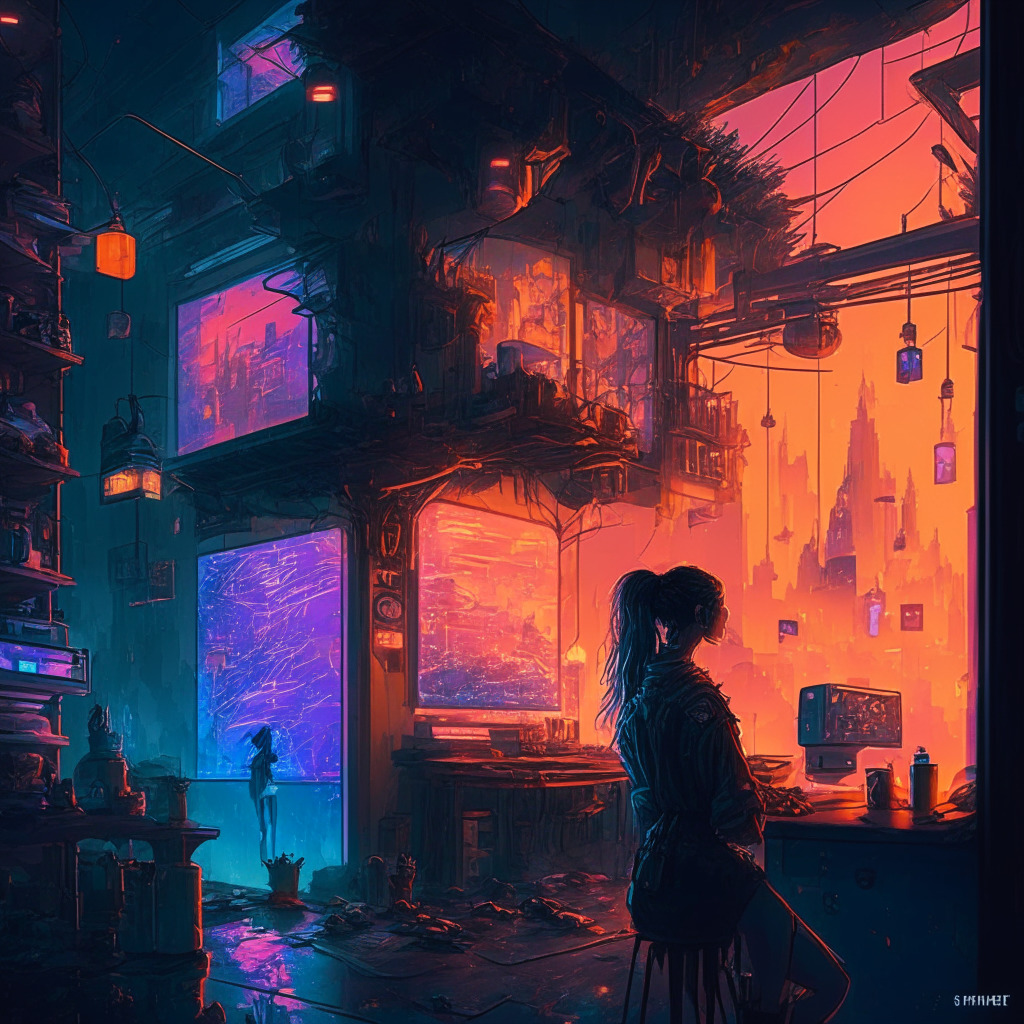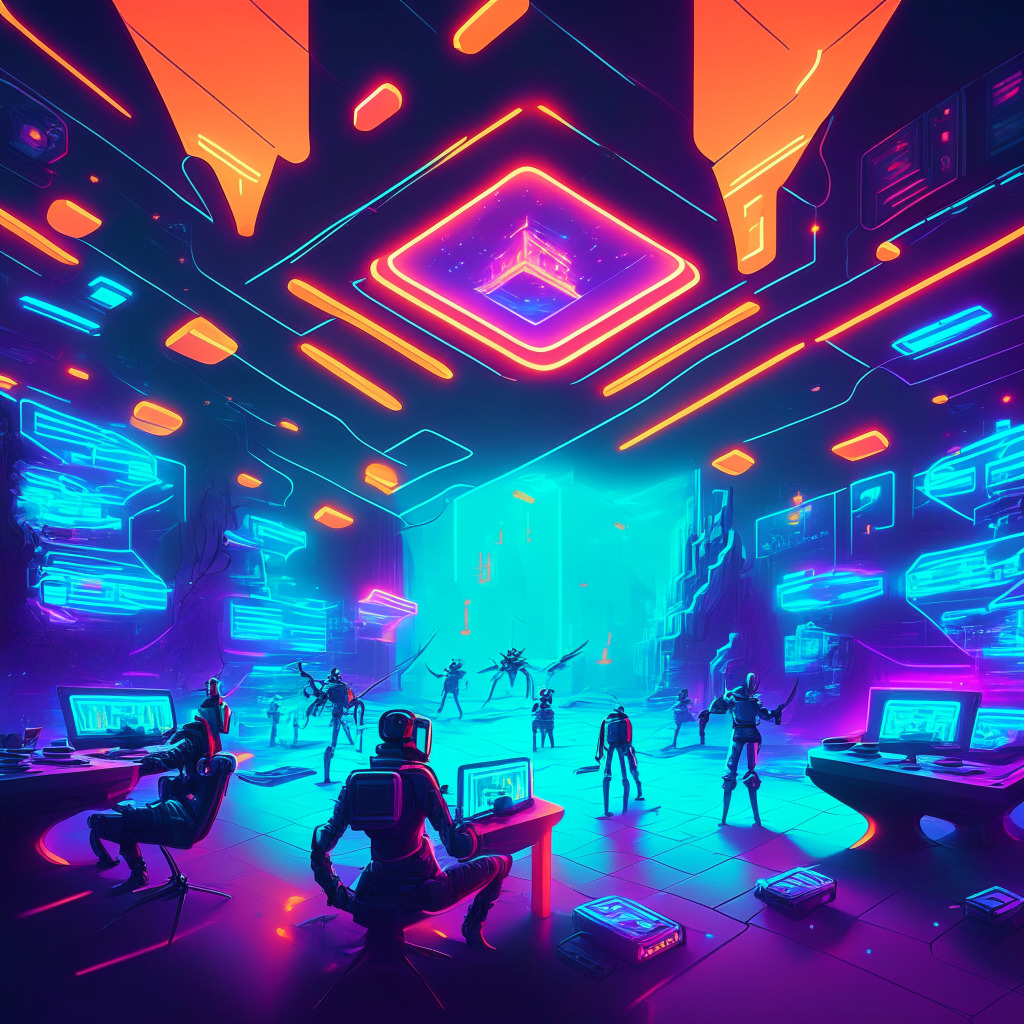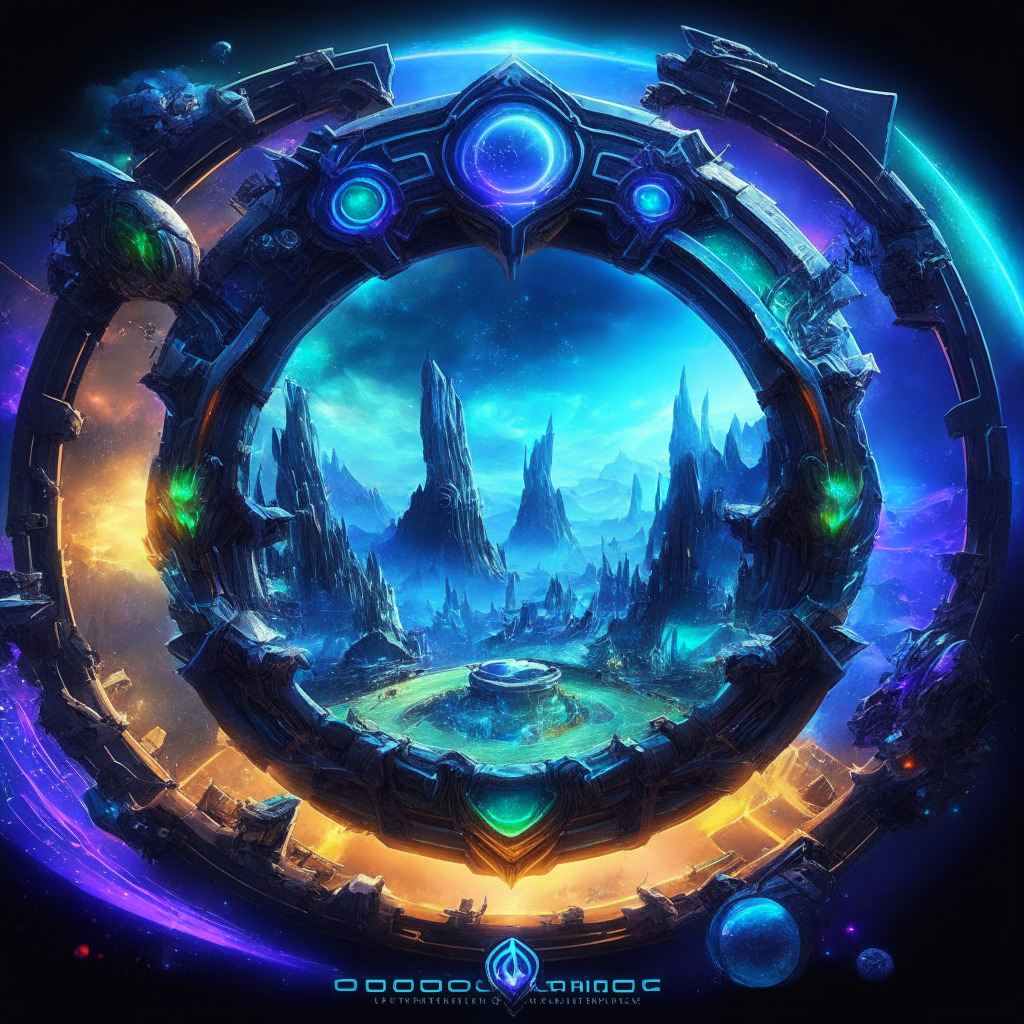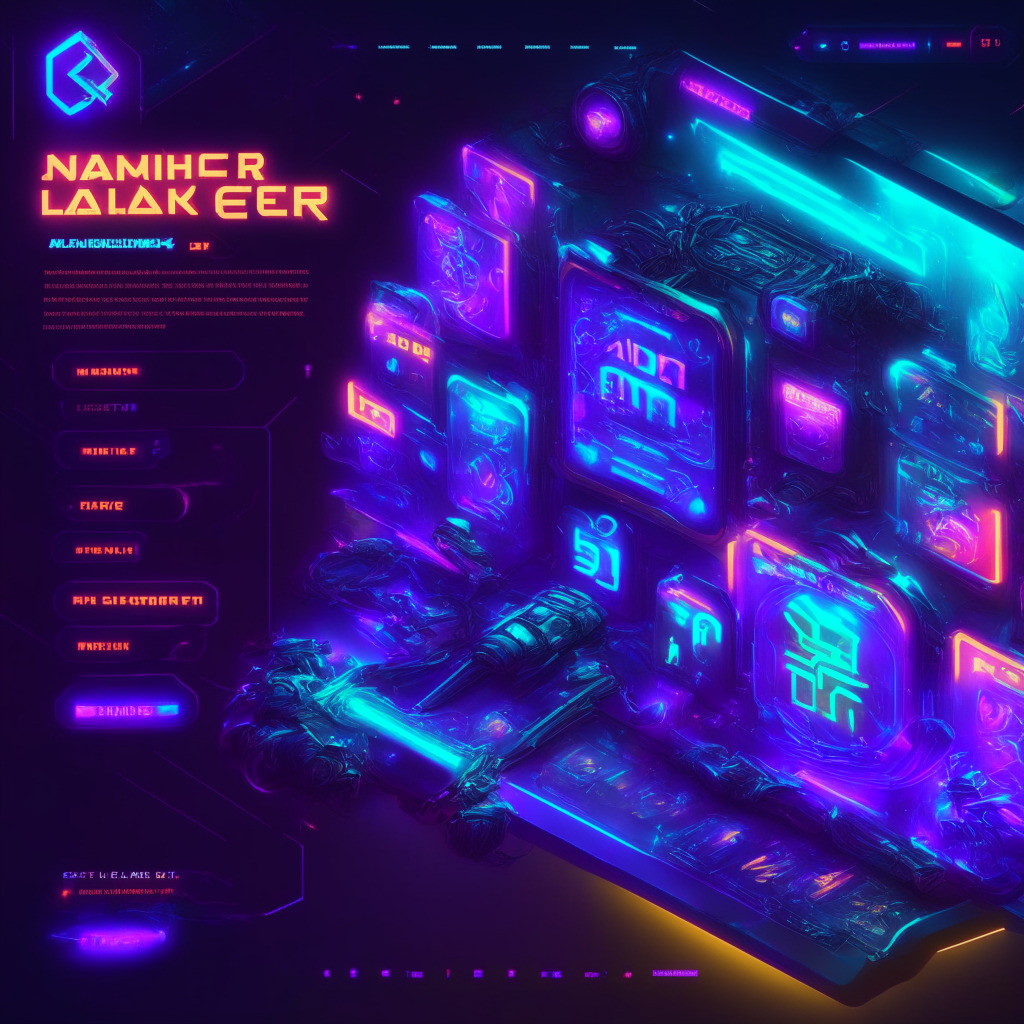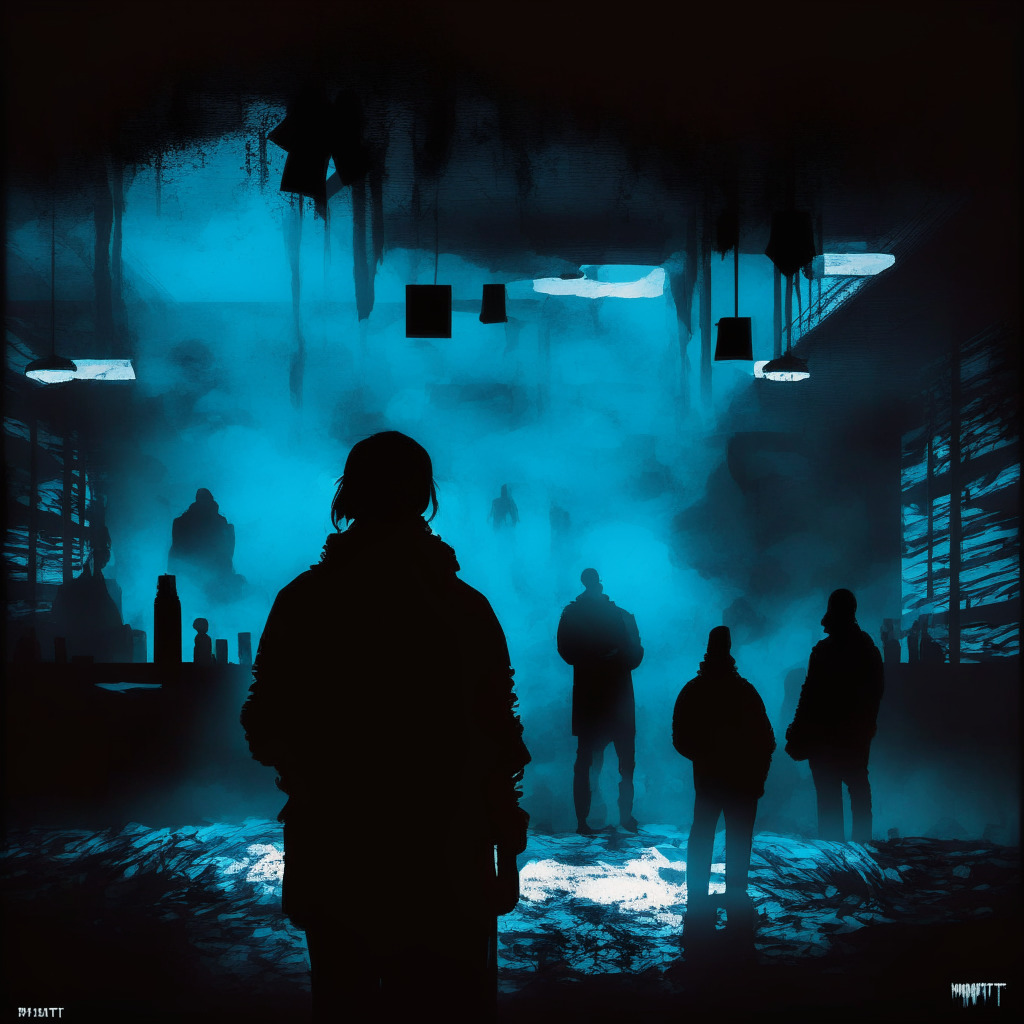Web3 game developers should focus on creating games, characters, and intellectual property that people love, minting NFTs based on these rather than inventing technical use cases. NFT value is derived from association with artists, brands or assets; therefore, brand building should be prioritised over utility building.
Search Results for: Web3
Web3 Social Media: Decentralization, Privacy, and the Debate on Content Control
Web3 social media platforms focus on decentralization, transparency, and user data ownership, leveraging technologies like AI, Machine Learning, and blockchain. Providing users with complete freedom and control, they incentivize engagement through token rewards and NFTs but face challenges in balancing freedom with content security.
Bridging TradFi and Web3: Circle Appoints Ex-CFTC Chair; Pros and Cons for Crypto Adoption
Circle appoints former CFTC chair Heath Tarbert as Chief Legal Officer, aiming to bridge traditional finance and web3. Circle CEO, Jeremy Allaire, advocates for better crypto regulation which could boost USDC adoption and foster closer collaboration with banks.
AliExpress NFT Mystery, Binance Lawsuit & Hong Kong’s Web3 Boom: Crypto’s Mixed Landscape
AliExpress partnered with Web3 developer The Moment3! for shopping-themed NFTs, but the announcement was deleted shortly after, raising concerns about NFTs’ future in China. Meanwhile, Hong Kong shows increasing demand for Web3 professionals, with pro-Web3 regulations attracting attention.
HyperPlay: The Future of Web3 Gaming, Boon or Burden for Players and Developers?
Web3-native gaming platform HyperPlay recently secured $12 million in Series A funding, emphasizing its commitment to fostering an open, developer-friendly environment. The platform features popular Web3 games and integrates traditional video game listings, catering to PC gamers seeking a comprehensive experience. However, potential challenges such as NFT integration and asset volatility persist in the emerging Web3 gaming sector.
Ethereum’s .box Domains: Bridging Web3 & Traditional Web or Opening Censorship Risks?
The Ethereum Name Service (ENS) is set to unveil the .box Top-Level Domain (TLD) in September 2023, marking the first domain name extension routable by both blockchain-native and traditional web DNS. This collaboration between ENS and My.box aims to help users own DNS-based and ENS-based names while bridging the gap between the traditional web and blockchain technology.
Can Web3 and Ethereum-based Tokens Help Combat Loneliness Epidemic?
PairedWorld, an innovative project by Unpaired, aims to combat loneliness and foster meaningful human connections by leveraging Web3 and Ethereum-based tokens. The platform rewards users for attending real-world events, promoting alliances among multiple communities in the digital world. Skepticism persists, but PairedWorld believes emerging technology can create profound social impact.
Web3 Revolution: Transforming Content Creation, Film, and Gaming with Blockchain
The creator economy is transitioning to Web3, spearheaded by content creators, film, and gaming industries. With the support of Web2 giants like Amazon and Mastercard, blockchain projects offer enhanced media experiences, new revenue streams, and innovative platforms such as Royalty and tokenization in film funding. Blockchain-based gaming experiences and collaborations continue to evolve the content creation landscape.
Enjin Blockchain: Revolutionizing NFTs, Web3 Adoption & Bridging the Gaming Divide
Enjin introduces a new mainnet, Enjin Blockchain, aiming to facilitate Web3 adoption and promote NFT creativity. Differing from other solutions, it doesn’t rely on smart contracts, instead integrating NFT functions into its foundational code while offering innovative features for developers and users.
U.S. Congressional Hearing Explores Blockchain’s Future and Web3 Applications
In a recent House Energy and Commerce Committee Subcommittee meeting, Polygon Labs’ Ryan Wyatt discussed the potential of blockchain technology in creating a decentralized, transparent Web3, benefiting users and driving economic growth. He emphasized the need for a well-regulated blockchain ecosystem in the US to maintain competitiveness and ensure domestic technology industry thrives.
Navigating the Chaos: Pros and Cons of Web3 Social Media Fragmentation
The emerging Web3 social media landscape faces fragmentation, with users struggling to adopt multiple platforms. Despite barriers to entry, increased experimentation and innovation are paving a path to the success of Web3 social networks, challenging well-established Web2 communities like Twitter and Instagram. The future of Web3 relies on balancing innovation with user experience to seamlessly connect global communities.
Penny Crypto Gains Whale Attention: Launchpad XYZ’s Ambitious Web3 Platform Pros and Cons
Cryptocurrency markets offer various opportunities for investors, with penny cryptos like Launchpad XYZ ($LPX) gaining traction due to their high ROI potential. Attracting crypto whales, the platform aims to bridge the gap between Web2 and Web3, engaging the next 10 million Web3 users through its decentralized exchange, trading terminal, NFT exchange, and comprehensive user experience.
Luxembourg Pioneers Web3 Regulation: Balancing Blockchain Innovation and Market Competition
Luxemburg’s competition regulator, Autorité de la Concurrence, initiates a first-of-its-kind study to explore the relationship between blockchain-based products, services, and existing digital companies. The study aims to ensure competitive and well-functioning markets, assess competition, and identify potential anti-competitive practices within Web3 and blockchain-based firms.
Blockchain Innovation & Regulation: Striking the Balance for US Leadership in Web3
The House Energy and Commerce Committee Subcommittee discussed blockchain technology and the future of Web3, addressing non-financial use cases such as contract tracing for Covid-19, data security, and supply chain management. However, lack of regulatory clarity and the focus on financial applications pose challenges to fostering innovation and retaining top talent in the US.
Bridging the Gap: Pitch Room Connects Investors and Web3 Startups for Success
The Pitch Room initiative by Cointelegraph bridges the gap between investors and cutting-edge blockchain and Web3 projects, addressing challenges in evaluating potential and mitigating risks. The platform features company summaries, elevator pitches, and in-depth presentations, fostering effective connections and bolstering innovation in the crypto and Web3 industry.
Roblox Bitcoin Mining Simulator Outshines Web3 Metaverse: A Curious Crypto Phenomenon
In the Roblox metaverse, Bitcoin Miner Beta allows users to simulate real-life bitcoin mining, gaining more popularity than actual cryptocurrency metaverse platforms. This raises questions about the popularity of Web3 metaverse projects and the future convergence between Web2 and Web3 gaming experiences.
Argus Secures $10M Seed Round and Launches World Engine: A New Era for Web3 Gaming
Haun Ventures leads a $10 million seed round for Web3 gaming studio Argus, which announces the launch of the World Engine, a blockchain-gaming software developer kit (SDK). Aimed at empowering developers to create unique Web3 gaming ecosystems, the World Engine and Argus’ in-house content game studio provide the tools needed for groundbreaking Web3 gaming.
Metaverse Ownership Divide: Web3’s Promise vs Reality and the Future for Creators
The emerging Web3 ecosystem aims to revolutionize creator engagement, privacy, decentralization, and data ownership. However, implementation challenges, uncertainty about optimal business models, and debates over metaverse ownership raise questions regarding its transformative potential amidst existing digital power structures.
Web3 Technology: The Future of Consumer Loyalty and Engagement Programs
Web3 technology has the potential to revolutionize customer loyalty and engagement, offering unique rewards, exclusive experiences, and utility-based digital collectibles through blockchain. As businesses explore Web3-based loyalty programs, collaboration with experienced tech partners and seamless integration can lead to success in an increasingly competitive market.
Unveiling Web3’s Impact on the Beauty Industry: Opportunities, Challenges, and Innovations
Leading beauty brands are engaging Web3-native consumers through digital artistry and innovative technology, such as NYX Professional Makeup’s beauty-focused decentralized autonomous organization (DAO), GORJS. Blockchain technology offers unique opportunities for skincare and makeup enthusiasts, improves transparency, and eliminates counterfeit products. This paves the way for a more sustainable and innovative future within the beauty industry.
Web3 Apps vs Big Tech: Decentralized Future Hindered by Restrictions and Adoption Challenges
The rise of Web3 apps faces difficulty in reaching a wider audience due to restrictions imposed by tech giants like Apple. Decentralized app stores such as OpenSea and PancakeSwap offer new avenues for Web3 adoption, while continuous education about Web3 technology remains crucial for future success.
Bridging Web2 and Web3 Gaming: Outer Ring MMO and the Future of Crypto Integration
The Web3 game Outer Ring MMO, developed by Maniac Panda Games, aims to bridge the gap between mainstream gaming and blockchain technology. Integrating familiar gameplay elements and a user-centric economy, it allows players to create, trade, and monetize in-game assets as NFTs, reaching a broader audience in the Web3 gaming space.
Binance’s Web3 Reality Show Winner: zkPass and the Future of Decentralized Identity Verification
Crypto exchange Binance announced zkPass as the winner of its “Build the Block” Web3 reality show in the metaverse. The startup offers a decentralized identity verification solution for Web3 applications, preserving privacy using multi-party computation and zero-knowledge proof technology.
GameStop & Telos Partnership: Exploring Web3 Game Launcher’s Pros and Cons
GameStop partners with Telos Foundation to develop GameStop Playr, a Web3 game launcher aimed at distributing AAA Studio games using Telos blockchain infrastructure. This collaboration aims to attract new customers to Web3 gaming and eliminate existing barriers for Web2 players transitioning to Web3.
GameStop and Telos Foundation Unite: The Future of Web3 Gaming and Risks to Consider
GameStop has announced a strategic partnership with The Telos Foundation to boost its Web3 gaming offerings by integrating Web3 games built on Telos’ robust blockchain network with its upcoming game launchpad, Playr. This collaboration aims to eliminate barriers, making it more accessible for Web2 players to explore Web3 gaming while attracting new users to the emerging ecosystem.
Tamadoge Arcade App: Revolutionizing Web3 Gaming and Bridging the Gap for New Users
Tamadoge, a leading web3 play-to-earn gaming platform, recently submitted their Tama Arcade app for approval on iOS and Android stores. Leveraging blockchain, smart contracts, and NFTs, the platform offers true ownership of in-game assets and simplifies the web3 gaming experience for new users through partnerships like Web3Auth.
AB de Villiers’ NFT Hack: A Cautionary Tale in the World of Web3
South African cricket legend AB de Villiers fell victim to an NFT hack, losing a significant portion of his 300 digital collectibles. Despite the security breach, de Villiers remains an advocate for cryptocurrency, engaging in various digital asset projects like Bored Ape NFTs, Neo Tokyo, and Impostors.
The Dark Side of NFT Influencers: Responsibility, Scams, and Trust in Web3 Community
Social media influencers in the NFT space hold significant responsibility as their actions influence their audience’s decisions on buying or selling NFTs. This becomes problematic when they unintentionally promote scams, such as the recent Pixel Penguins NFT collection, raising questions about their role as trusted thought leaders in the crypto and NFT community.
Cricket Legend AB de Villiers Dives into Crypto, NFTs, and Web3 Investment Platform
Cricket legend AB de Villiers shares his journey into Web3 and cryptocurrencies, highlighting his experience with NFTs and becoming an ambassador for Ethereum-based investment platform, Common Wealth. He emphasizes the importance of simplifying processes for newcomers and cautiously investing in the volatile crypto market.
Building the Web3 Metropolis: Challenges, Solutions, and the Path to a Decentralized Future
The Web3 industry envisions a decentralized, user-centric internet, but struggles to deliver engaging consumer experiences. Public blockchains offer interoperability and peer-to-peer networks, but Web3 must develop a responsive data layer for advanced applications and prioritize enjoyable interactions to attract true residents and realize the virtual metropolis vision.
Unraveling Crypto Complexities: Launchpad XYZ’s All-In-One Web3 Platform for Mass Adoption
Launchpad XYZ (LPX) is developing an all-in-one web3 platform to make the intricate world of cryptocurrencies more accessible. Focused on humanizing the experience, the platform offers a user-friendly portal showcasing various blockchain projects, aiming to facilitate mass adoption by bridging the gap between Web2 and Web3.
Essential Security Measures for Web3 Startups: Tips from Israel Crypto Conference Expert
At the Israel Crypto Conference, Shahar Madar of Fireblocks emphasized the importance of security in Web3 startups and shared insights to protect platforms and users, including establishing a security framework, access control, and developing a game plan against potential threats.
